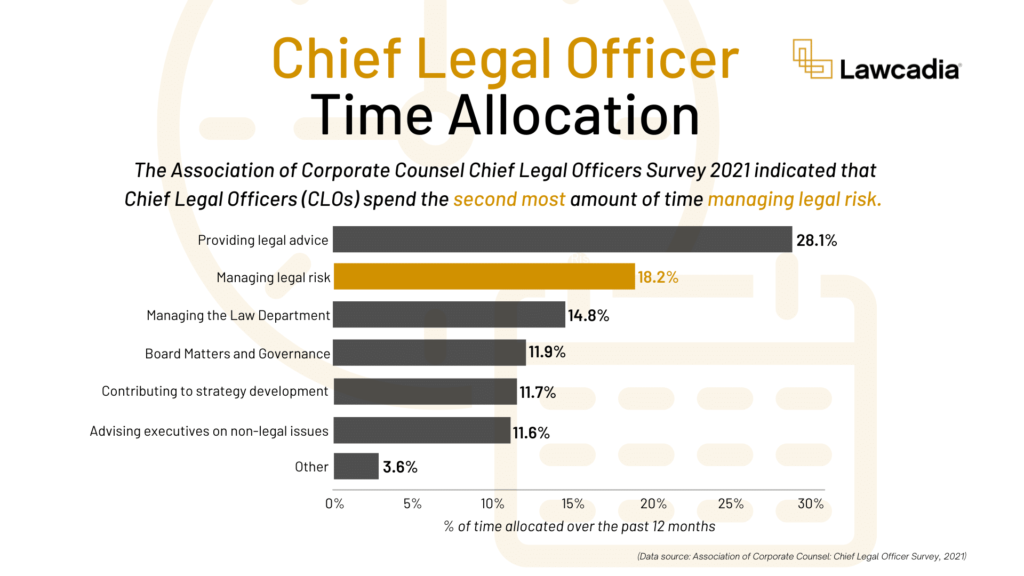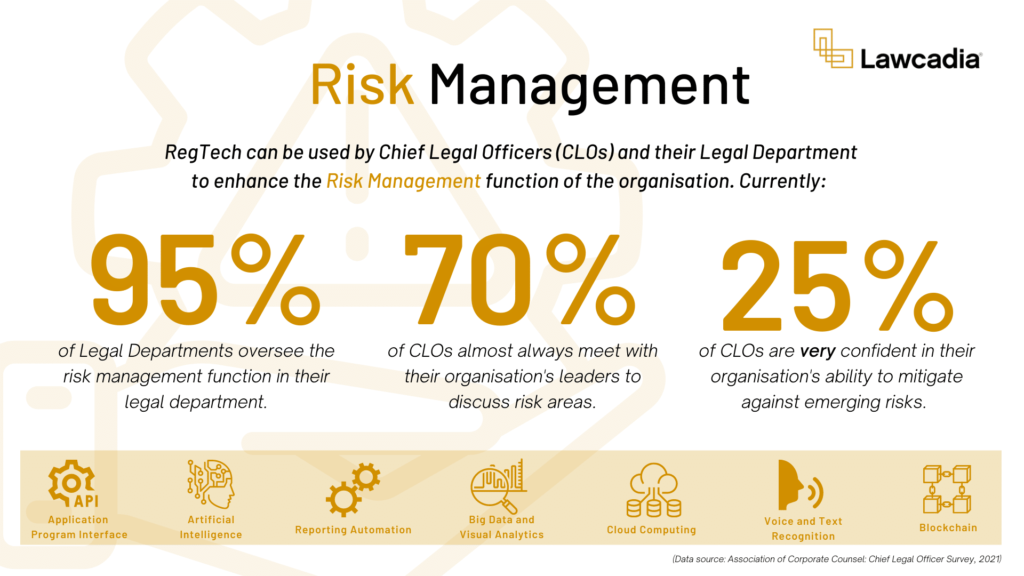Risk management in the digital age is a volatile, intricate, and constant process that, although laborious, often delivers no visible outcome or tangible value to the day-to-day operations of an organisation. As the risk landscape continues to intensify, in-house legal teams are seeking solutions that can facilitate a strategic and comprehensive approach, whilst maximising the operational value of risk management.
In this final instalment of our three-part RegTech Series, we examine how RegTech tools can transform the risk management function for in-house legal teams. We discuss the key features that enable proactive governance, assist with contingency planning, and facilitate strategic decision-making.
What is risk management?
Risk management is the process of detecting, evaluating, prioritising, and managing potential and imminent threats to an organisation’s operations, resources, or reputation. RegTech solutions for this function use technology to assess an organisation’s risk exposure in order to develop strategies that can mitigate potential threats. This involves establishing digital frameworks and workflows that monitor internal operations and the external environment more efficiently and at a lower cost than manual processes.
In the past, risk management was mostly a great concern for financial institutions, however, increasingly complex technology systems, access to large amounts of data and heightened cyber threats has exposed nearly all industries to new forms of business, legal and financial risk. Consequently, risk management practices are gaining wider adoption across all industries and legal teams are assuming more responsibility, allocating more resources, and spending more time managing risk in their organisation. Accordingly, the Association of Corporate Counsel, Chief Legal Officers Survey 2021 revealed that 95% of Legal Departments now oversee the risk management function in their organisation, with Chief Legal Officers (CLOs) spending approximately 18% of their time managing legal risk.

RegTech risk management solutions for in-house teams
RegTech solutions for risk management are generally built upon core technologies such as Application Program Interface (API), Big Data and Analytics, Cloud Computing and Voice and Text Recognition. For in-house legal teams, RegTech risk management solutions can provide additional functions that automate risk calculation, project potential scenario models, and streamline workflow management. As a result, risk management can be an enabling business practice that contributes to strategic decision making through predictive analysis and contingency planning. The operational benefits of these capabilities are cross-functional, especially when risk management is integrated with other functions such as matter intake, matter management or spend management. Here, the legal team will be able to aggregate data from across the organisation, which allows them to comprehensively monitor processes and promptly deploy mitigation tactics where needed. Consequently, the time and costs of overseeing multiple risk areas are reduced, all the more whilst gaining business insights, maximising the operational value of risk management and demonstrating proactive governance.
Some additional benefits of using RegTech to manage risk include:
-
- A centralised system that can be integrated with other functions across the organisation
- Automated decision-making based on built-in, coded, predetermined logic and workflows
- The ability to store, log and track all user actions
- Increased data linearity
- Supports transparency, cooperation, and a positive risk culture across the organisation

Conclusion
In summary, RegTech can facilitate a strategic and comprehensive approach to risk management for in-house legal teams. The ability to integrate the risk management function with other processes facilitates streamlined workflows that save time, costs and produce business insights that contribute to strategic decision-making. As a result, risk management can deliver additional value, demonstrate proactive governance, and enhance legal operations.
Read more of the RegTech Series below:

